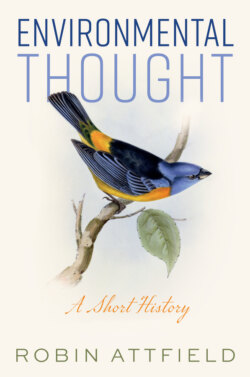Читать книгу Environmental Thought - Robin Attfield - Страница 23
The Rise of Islam
ОглавлениеIslam originated in seventh-century Arabia, but before long took over Egypt and the rest of North Africa and also the former Roman province of Syria, soon expanding into most of Spain, Sicily, Mesopotamia, Persia and the lands north and east of it once conquered by Alexander the Great. It proclaimed a purer and less diluted version of monotheism than Christianity, and embodied the belief that the Qu’ran conveys God’s literal message to humanity. In the late Middle Ages, Mohammedans lost Sicily and Spain but captured Asia Minor, the Balkans and (in 1453) Constantinople.
Islam has always maintained that human beings are God’s vicegerents (khalifa) on Earth, and the custodians of the entire natural world, charged not to violate the ‘due measure’ and ‘balance’ that God has created. Thus, although the entire bounty of nature has been created for the sake of human beings, this anthropocentric stance does not imply that humanity is granted unbridled exploitative powers, for nature has been made for all generations, and not just for one, and human beings remain answerable to God. Within Islamic tradition (Hadith), there is provision for recognizing hima (protected pasturage, with special protection for indigenous flora and fauna), and also for harun, sanctuaries where killing animals of game species is forbidden, and where springs and watercourses are respected (Nomanul Haq 2001).
The Islamic philosopher Averroes, or Ibn Rochd (1126–98) flourished in the relatively tolerant Muslim kingdom of southern Spain in the twelfth century (where by the end of the tenth century the royal library at Córdoba was said to have had more than 400,000 volumes: Whitney 2004: 11). He was influenced by Aristotle, and his work is a Muslim counterpart to Christian theology, conveying belief in divine purpose and concern for humanity. Like many Christian thinkers, he was impressed by the natural world as a work of art, and argued that it discloses the work of a craftsman-like creator (Glacken 1967: 220–1). He also defended science, replying to The Incoherence of the Philosophers, an anti-scientific treatise of al-Ghazali (1058–1111), with his formidable counter-sceptical work The Incoherence of the Incoherence (Whitney 2004: 13).
Thus Islam during the Middle Ages fostered the scientific quest for laws of nature, particularly at centres of learning such as Córdoba and Baghdad. These studies made a large difference when, in the late Middle Ages and the Renaissance period, West Europeans, influenced by Islamic science, resumed the study of mathematics, physics and astronomy.
